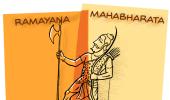Dronaacharya was the victim of what we would today call a politically motivated disinformation campaign. The Pandav strategy had the classic characteristics of disinformation.
Three takeaways for individuals living in a global society today, where misinformation and disinformation are rife.
A fascinating excerpt from Dr Aruna Narlikar, Professor Amitabh Mattoo and Professor Amrita Narlikar's book, Strategic Choices, Ethical Dilemmas: The Stories of the Mahabharat.
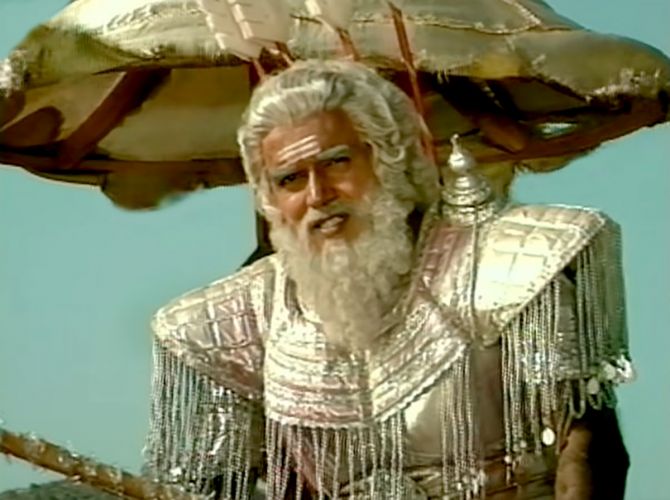
Dronaacharya had only one weakness: His beloved son, Ashwatthama.
It was for the sake of Ashwatthama -- to enable the family to enjoy a life together of honour and comfort--that Dronaacharya had given up his preferred path of being a sage and instead embraced the identity of the warrior-teacher.
Trained by his father and having had the brave Kaurav and Pandav brothers as classmates to spar with, he had turned out to be a formidable and valiant warrior in his own right. The deep love that Dronaacharya bore his son was public knowledge.
Krishn advised the Pandavs to exploit this weakness and came up with a villainous plan: Dronaacharya should be told that his son had been killed in battle.
This false news would cause their renowned guru such intolerable grief that he would lay down his arms in despair. The Pandavs could then gain an advantage in the war.
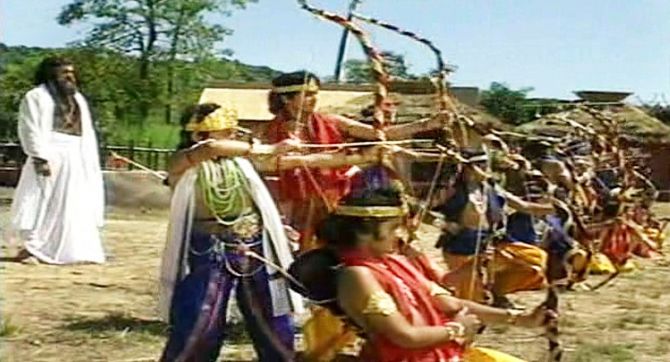
The immorality of this plan was obvious to all. But the Pandav brothers agreed to it, deeming this to be the only way.
The strongest of the Pandavs and wielder of the mace, Bheem, then struck a terrible blow to a gigantic elephant, killing him.
This majestic elephant had fought on the side of the Pandavs, bravely inflicting severe damage on the Kaurav side, but had the misfortune of also being called Ashwatthama.
Having thus killed a namesake of Dronaacharya's son, the Pandavs could now truthfully claim: 'Ashwatthama is dead.' Dronaacharya's son was to be kept embroiled in another corner of the battle so that the claim of his death could not be verified.
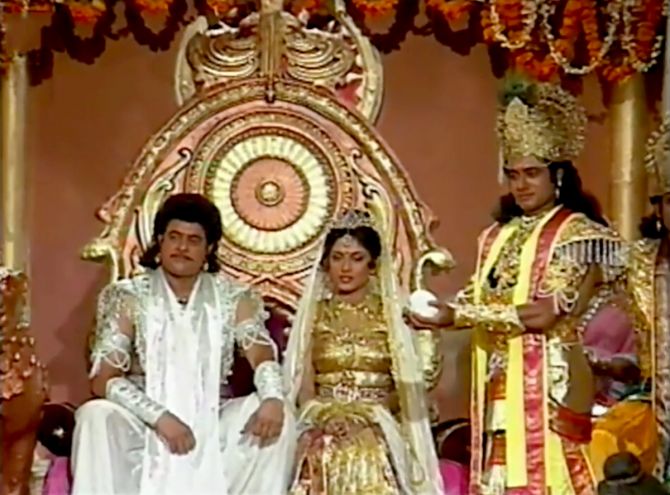
On hearing Bheem's announcement that Ashwatthama had been killed, Dronaacharya was shaken to the core. But rationality soon replaced his immediate emotion: Ashwatthama had outstanding proficiency with weapons and was almost impossible to thwart on the battlefield.
Surely this news could not be true. And reassuring himself thus, Dronaacharya leapt back into the battle with renewed force.
Seeing that Dronaacharya was less gullible than initially assumed, Krishn recognized that the false news would have to be conveyed by a source of the highest credibility.
Yudhishthir, the son of Dharm and renowned for always speaking the truth, was such a source; were he to announce the news of Ashwatthama's death, Dronaacharya would have no other choice but to believe the fake news.
To bring Yudhisthir on board, Krishn first pointed out that unless Dronaacharya were stopped, the entire Pandav army would not survive beyond half a day. Urgent action was needed. And second, he stated:
अनतृ ं जीवितस्यार्थेवदन्न स्पृशस्पृ्यतेऽनतृ ैः ।
(Anritam Jeevitasyaarthe vadanna sprishyateanritaihi.)
He who utters falsity to save a life is not touched by (the sin of) speaking a lie.
—Mahabharat, VII.190.47
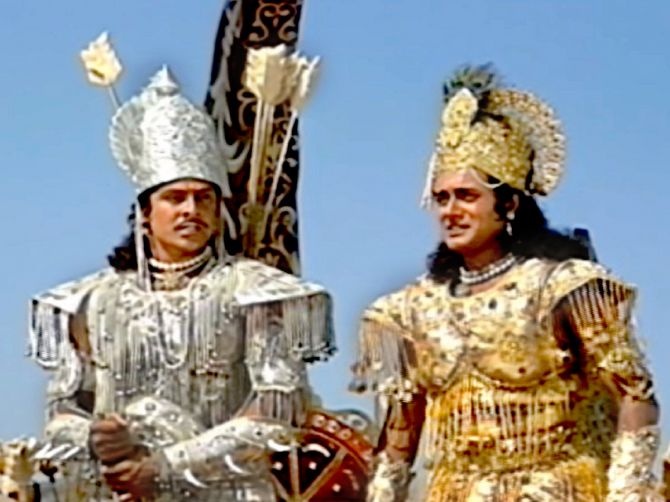
Yudhishthir complied with the plan, while still attempting a compromise that he felt he could live with.
In the interest of victory for the Pandav side, he confirmed to Dronaacharya that Ashwatthama had been killed.
Still loath to tell an outright lie though, he muttered under his breath 'Ashwatthama the elephant'.
These qualifying words were rendered deliberately inaudible to Dronaacharya, and the central falsehood -- Ashwatthama has been killed -- produced the intended, brutal effect.
Broken, Dronaacharya laid down his weapons and withdrew into a samadhi (a stage of intense meditation that enlightened individuals could assume before death).
Drishtadyumn--the commander of the Pandav army, whose life's purpose was to kill Dronaacharya -- seized the opportunity.
Ignoring Arjun's pleas that his (unarmed, grief-struck and immersed in a final meditation) teacher be left alone in peace, the brother of Draupadi mercilessly beheaded Dronaacharya.
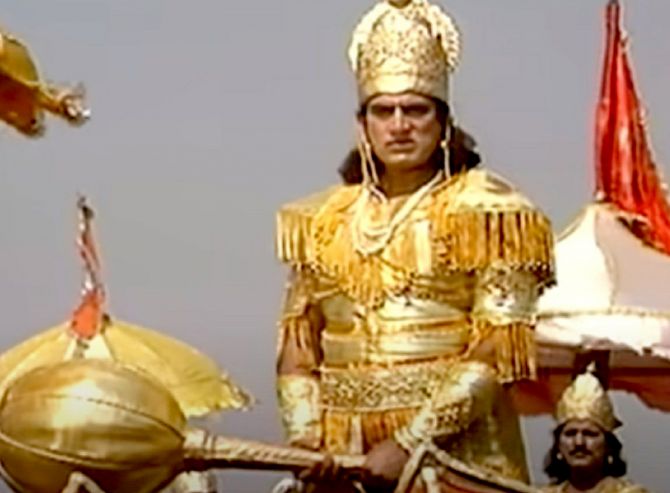
The treacherous killing of Dronaacharya secured the Pandavs a strategic advantage that they needed.
The damage to the Kaurav side was immense. But the act of lying also produced deep, moral scars on the Pandavs.
Yudhishthir's chariot had, until this incident, floated four inches above the ground--a testimony to the purity of his heart that always spoke the truth.
With the lie uttered by one who should have known better, Yudhishthir's chariot sank to the ground, symbolizing his fall from grace.
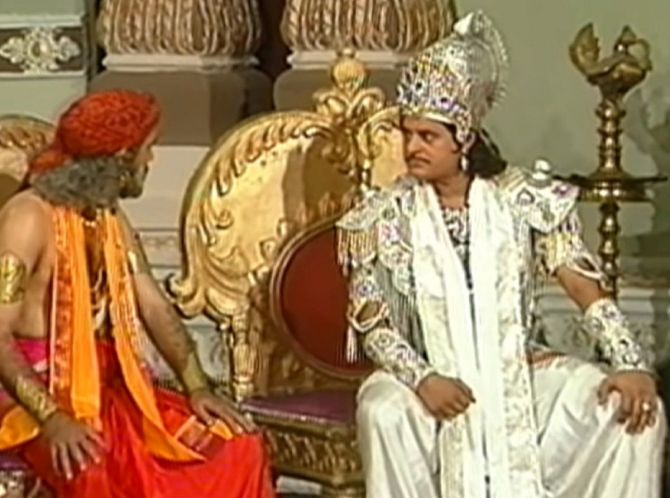
Lessons for the every day
Dronaacharya was the victim of what we would today call a politically motivated disinformation campaign. The Pandav strategy had the classic characteristics of disinformation.
The 'news' of Ashwatthama's death was deliberately manipulated with the killing of Ashwatthama the elephant. Pronouncements of 'Ashwatthama is dead' were intentionally made out of context.
To legitimise the fake news, a highly credible channel of communication -- Yudhisthir, the personification of truth and goodness was chosen.
Verification was rendered impossible by ensuring that Dronaacharya's son was kept preoccupied in another, distant part of the battle.
The lie was created and disseminated with a targeted purpose: to demoralise -- and in effect paralyse -- a warrior who was indispensable for the enemy side.
Had Dronaacharya been more guarded in revealing his closeness to his son, the Pandavs would not have been able to exploit his weakness in the first place.
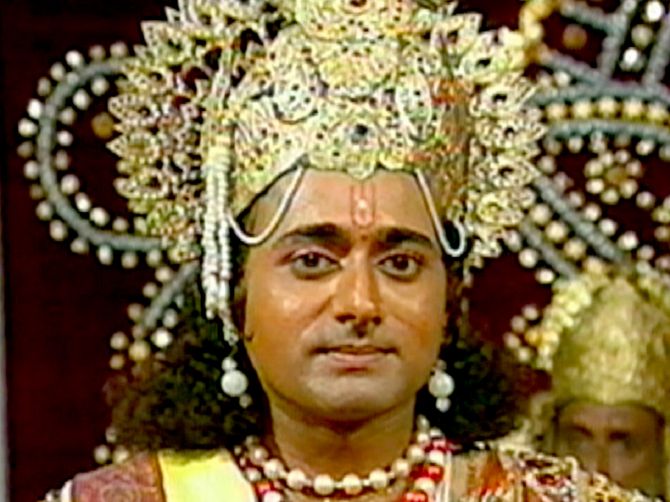
Second, had there been better ways to keep the different fields of the battle connected, the spuriousness of the claim of his son's death would have become evident with a quick fact-check.
Third, had he not believed the usually trustworthy Yudhishthir, Dronaacharya would have been able to battle on until his son's return -- and then invest renewed energy into the battle.
Unable to withstand his onslaught, the Pandav army would have been decimated in half a day, exactly as Krishn had predicted. The war would have ended with a victory for the Kauravs.
Unfortunately for the Kauravs, Dronaacharya's circumstances did not afford him these luxuries.
While Dronaacharya was thus unable to defend himself against fake news, we have a wider range of options available to us.

Three takeaways follow for individuals living in a global society today, where misinformation and disinformation are rife.
First, one should be more tight-fisted in sharing personal data and private details.
This is especially so in a world of increasing digitization, where hacks, fine print and differentiated laws across jurisdictions on data privacy and data sharing can leave us more vulnerable than ever to the misuse of revealed (sometimes inadvertently revealed) information.
Second, while Dronaacharya did not have access to modern technology to verify the fake news of his son's death in a faraway battle, we do have the means to do so.
We owe it to ourselves and to others that we do not internalize or disseminate information without verifying it.
This includes checking the trustworthiness of the source, cross-checking across diverse credible sources, nipping false narratives in the bud (when possible), and reporting cyberattacks and potential fakes.
This may not be easy amidst the time pressures for immediate reactions, which social media and news cycles have come to demand. But with the privilege of being able to exercise our voice (that modern-day digital technologies facilitate) comes a responsibility of constant vigilance.
Excerpted from Strategic Choices, Ethical Dilemmas: The Stories of the Mahabharat by Dr Aruna Narlikar, Professor Amitabh Mattoo, and Professor Amrita Narlikar, with the kind permission of the publishers, Penguin Random House India.
Feature Presentation: Rajesh Alva/Rediff.com
Photographs curated by Manisha Kotian/Rediff.com


